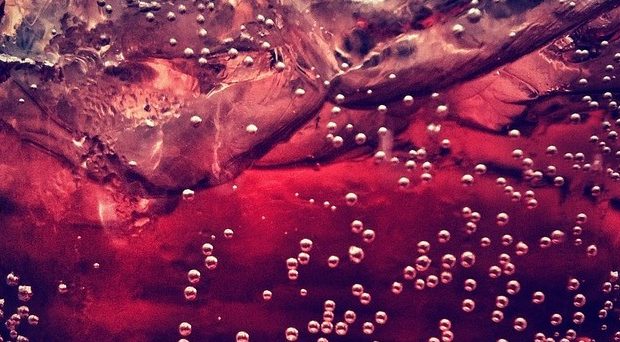
Let’s face it, sugar tastes good. Added sugars account for approximately 16% of total energy intake. That’s around 6 tablespoons (91 grams) of added sugar every day. The largest source of added sugars in our diet is from sugar-sweetened drinks. This is why a large amount of research is focused on the health effects of these types of drinks.
The beneficial effects of protein-rich diets are well documented. Increasing protein intake increases satiety, increases metabolism and decreases energy intake. But what happens when we drink a sugar-sweetened beverage with our steak dinner? How does this change how our body processes and uses the nutrients from the meal?

To answer these questions, we asked volunteers to spend 24 hours in a metabolic chamber on two separate occasions. The metabolic chamber is a 12-by-10-foot hermetically controlled room. This allows us to measure exactly how the body is using the nutrients from the foods. By having someone stay in a metabolic chamber, we can determine how many grams of carbohydrate, protein and fat the volunteer is using and how many calories they’re burning every minute.
To fully understand how the volunteer used the nutrients from the meals, we measured oxygen consumption, carbon dioxide production and urinary nitrogen excretion. Nitrogen is a key component of protein and the amount excreted in urine provides an estimate of protein breakdown. Once protein utilization is known, the amount of carbohydrate and fat utilization can be correctly calculated from respiration.
For all testing procedures, the volunteers ate the exact same foods throughout the day. During one of the visits, they ate a diet consisting of 15% protein and for the other visit they ate a diet consisting of 30% protein. At each meal, they had either a sugar-sweetened drink or an artificially sweetened drink. After each meal, we asked the participant about their hunger and desire to eat certain types of foods.
The body only expended 80 of the 120 kcals that was provided by the sugar-sweetened drink
We found that drinking a sugar-sweetened drink with a meal significantly decreases fat use and diet-induced thermogenesis (heat production). And when we paired the sugar-sweetened drink with a protein-rich meal, the combination further decreased fat use and diet-induced thermogenesis by more than 40%. Additionally, we found that, over the course of a day, the body only expended 80 of the 120 kcals that was provided by the sugar-sweetened drink, thus creating a 40-kcal surplus independent of how much protein was in the meal.
These results highlight the impact that consuming a sugar-sweetened drink can have on energy balance and fat use. One implication of the results is that the body’s reduced metabolic efficiency after drinking a sugar-sweetened beverage can lead to a greater tendency to make and store fat. Our findings provide further insight into the potential role of sugar-sweetened drinks in the etiology of obesity.
So, what happened to those who drank artificially sweetened drinks? Did their metabolism drop or had no effect? Curious since there’s a claim that artificially sweetened drinks fool the body into thinking that it’s sugar.
The study compared a sugary drink with an artificially sweetened drink because of this we cannot make a comparison between an artificially sweetened drink and water. What we found was compared to an artificially sweetened drink, having a sugary drink with a meal altered the metabolic effects of the meal.
This is great! Just another reason that diet drinks are a better choice for weight loss.
Are you talking about diet soda or just diet drinks in general ?
Because most of these diet drinks contain aspartame. Which is terrible for you.
https://www.fda.gov/ohrms/dockets/dailys/03/jan03/012203/02p-0317_emc-000199.txt
You should do some research before you make a claim like “diet drinks are a better choice for weight loss” because in all reality they usually are just as ineffective
You should really just stick to water , tea , and coffee if you want to truly lose weight friend.
Based on how I read the summary of the study, am I to assume that the groups received either a sugary drinks (experimental) or artificially sweetened (control) drinks? Therefore the artificially sweetened drinks had less significant effect on the subjects metabolism than the sugary drinks. Is that accurate?
You are correct. However, keep in mind that this was an acute study and studies are needed to determine the effect of having a sugary drink with one or more meals over a period of time on metabolism.
I wonder why there were only 2 meals a day. Since participants didn’t eat dinner, would there be any relationship between less energy intake / the fat storage / the sugar drink effect? I was thinking maybe less energy itself would make body prone to store fat in the first place, and the sugar drink is just a little more push?